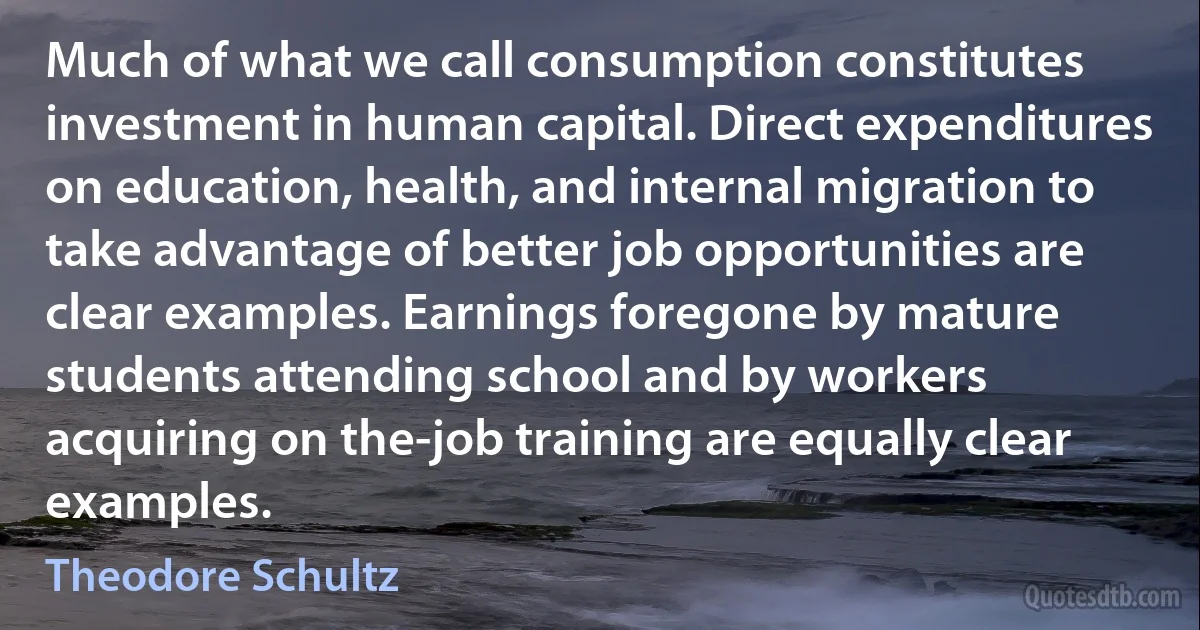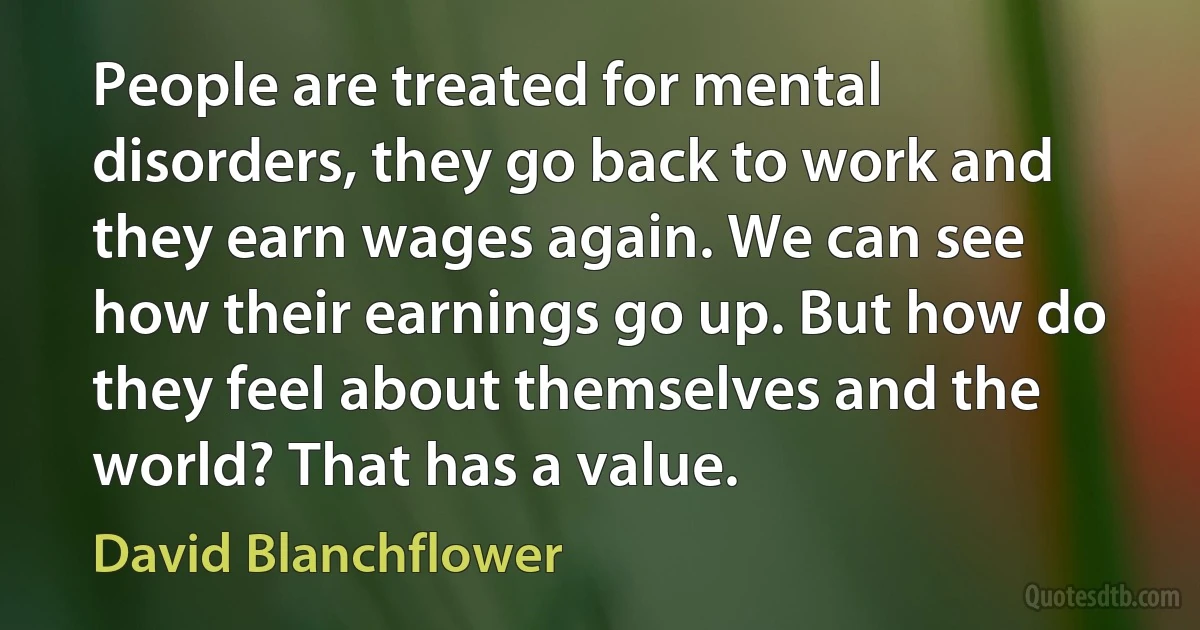Earnings Quotes - page 2
Remind them that the sword still hangs upon the wall and the heart still beats within the man, and that that sword will be unsheathed again, if necessary, in defense of your rights. Given them to understand that you will not stand patiently by and see your hard earnings squandered by a luxuriating class of idlers. If the American manhood will arouse itself and speak to those fellows in plain language, not to be misunderstood, they can save themselves, their country and their children, from the fate of poverty which awaits them. Will you do it?

Lucy Parsons
Being a beggar, he said, was not his fault, and he refused either to have any compunction about it or to let it trouble him. He was the enemy of society, and quite ready to take to crime if he saw a good opportunity. He refused on principle to be thrifty. In the summer he saved nothing, spending his surplus earnings on drink, as he did not care about women. If he was penniless when winter came on, then society must look after him. He was ready to extract every penny he could from charity, provided that he was not expected to say thank you for it. He avoided religious charities, however, for he said it stuck in his throat to sing hymns for buns. He had various other points of honour; for instance, it was his boast that never in his life, even when starving, had he picked up a cigarette end. He considered himself in a class above the ordinary run of beggars, who, he said, were an abject lot, without even the decency to be ungrateful.

George Orwell
There is ample work for all in this country provided all will work. The problem of unemployment is aggravated, not wholly by the alien knocking at our gate, but by the laborer at home slamming the door of production behind him and walking out. Stopping industry will not right the matter. And in the last analysis it is the earnings of industry, which on the average are only fair, that provide alike for wages and the increase of investment on which is the sole dependence of the advance of civilization.

Calvin Coolidge
That power and that authority has to reside somewhere in every government. Originally it lay with the king. After limitations began to be placed upon him, it was conferred upon the parliamentary body. One of the great contributions which America made to the science of government was the establishment of an independent judiciary department under which this authority resides in the Supreme Court. That tribunal has been made as independent and impartial as human nature could devise. This action was taken with the sole purpose of protecting the freedom of the individual, of guarding his earnings, his home, his life.

Calvin Coolidge
People who originally have no means but are ultimately able to earn a great deal, through whatever talents they may possess, almost always come to think that these are permanent capital and that what they gain through them is interest. Accordingly, they do not put aside part of their earnings to form a permanent capital, but spend their money as fast as they earn it. But they are then often reduced to poverty because their earnings decrease or come to an end after their talent, which was of a transitory nature, is exhausted, as happens, for example, in the case of almost all the fine arts; or because it could be brought to bear only under a particular set of circumstances that has ceased to exist.

Arthur Schopenhauer
When you (President Ratu Sir Penaia Ganilau) called me at Lomaloma in December 1987 and asked me to form an Interim Government to prepare the country for a return to parliamentary rule, I knew the task at hand would be onerous. Fiji had experienced the ordeal of two military coups. Society was fractured, the economy was tottering and the country had been ostracised by some of its oldest friends and allies. There was no Parliament and no properly functioning political system. Even institutions of State, such as the judiciary, were seriously weakened, to the extent that the citizenry justifiably feared a breakdown in law and order. The business community was hit by a slump in sales and confidence, leading to reduced earnings and loss of jobs.

Kamisese Mara
When returns on capital are ordinary, an earn-more-by-putting-up-more record is no great managerial achievement. You can get the same result personally while operating from your rocking chair. Just quadruple the capital you commit to a savings account and you will quadruple your earnings. You would hardly expect hosannas for that particular accomplishment. Yet, retirement announcements regularly sing the praises of CEOs who have, say, quadrupled earnings of their widget company during their reign - with no one examining whether this gain was attributable simply to many years of retained earnings and the workings of compound interest.

Warren Buffett
An income tax intended to reduce inequality and promote the diffusion of wealth has in practice fostered reinvestment of corporate earnings, thereby favoring the growth of large corporations, inhibiting the operation of the capital market, and discouraging the establishment of new enterprises.

Milton Friedman
Too many crucial things about this country turn out to be highly recommended because they are 'invisible'. There is the 'hidden hand' of the free market, the 'unwritten' Constitution, the 'invisible earnings' of the financial service sector, the 'magic' of monarchy and the 'mystery' of the Church and its claim to the interpretation of revealed truth. When we do get as far as the visible or the palpable, too much of it is deemed secret. How right it is that senior ministers, having kissed hands with the monarch, are sworn to the cult of secrecy by 'The Privy Council Oath'. How right it is that our major foreign alliance - the 'special relationship' with the United States - is codified by no known treaty and regulated by no known Parliamentary instrument.

Christopher Hitchens
Why, the very first act of the State, the compulsory assessment and collection of taxes, is itself an aggression, a violation of equal liberty, and, as such, initiates every subsequent act, even those acts which would be purely defensive if paid out of a treasury filled by voluntary contributions. How is it possible to sanction, under the law of equal liberty, the confiscation of a man's earnings to pay for protection which he has not sought and does not desire? And, if this is an outrage, what name shall we give to such confiscation when the victim is given, instead of bread, a stone, instead of protection, oppression? To force a man to pay for the violation of his own liberty is indeed an addition of insult to injury. But that is exactly what the State is doing.

Benjamin Tucker
From a rational standpoint, it might be expected that man should be far more willing to express financial confidence in his skills rather than risking his earnings on the mindless meanderings of chance. Experience, however, has strongly indicated the reverse proposition to hold true.

Richard Arnold Epstein
The interviewer Stina Dabrowski said to Thatcher: "So when people criticise you and say what it led to the period when you were prime minister was that the rich became richer and the poor and the became poorer." Thatcher replied "That is not correct. The poor also became less poor, because the benefits at the bottom for those who are genuinely poor do go up. Money spend on education goes up and on the Health Service goes up so that is not true. What happens you might get a bigger gap but you might start here creates a small gap particularly if you're paying top tax today - 83% on earnings and income and 98% on savings. Your gap goes up, it does go up, but the whole thing moves up the gap, you must give people incentive!

Margaret Thatcher
The general character of our solution must be, therefore, that it withdraws from expenditure a proportion of the increased earnings. This is the only way, apart from shortages of goods or higher prices, by which we can secure a balance between money to be spent and goods to be bought.

John Maynard Keynes



